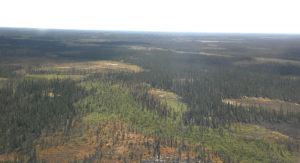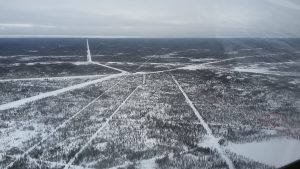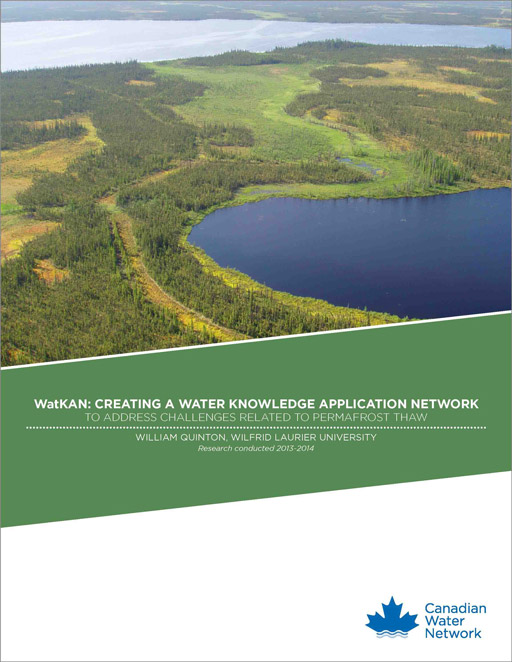Taiga Plains Research Network
Climate change will continue to impact much of the Taiga Plains rapidly and severely due to the temperature sensitivity of this ecosystems and permafrost thaw. This introduces considerable uncertainty about the future of freshwater and other ecosystem services depended upon by the northern economy and communities. We lack adequate understanding of the cumulative effects of permafrost thaw and ecosystems feedbacks to establish the sustainable practices required to balance economic, societal and ecosystem needs. Resource exploration and extraction is poised to expand rapidly in the NWT yet little is known about the socio-economic impact of permafrost thaw coupled with natural resource development. To ensure successful community adaptation and planning, we require predictive tools developed through a targeted scientific study to facilitate long-term projections of permafrost conditions and ecosystem changes that may impact northern lifestyles, infrastructure, and resource development and management decisions.
The Taiga Plains Research Group was formed to address these issues in a collaborative and multidisciplinary approach. Comprised of researchers from academic institutions, partners within the Federal and NWT Governments, other NGOs and northern community leaders, the TPRG strives to conduct relevant world-class research on the Taiga Plains and contribute to capacity building and training in these affected communities.
Since 2010
The WLU-GNWT Partnership
The application to the Canadian Foundation for Innovation (CFI) entitled “Improving Canadian Capacity for Predicting the Impacts of Natural and Human Disturbances on Boreal Water Resources” by the members of the Cold Regions Research Centre and Laurier Institute for Water Science was recommended for funding by the Special Multidisciplinary Assessment Committee to CFI in July 2009.
On May 26, 2010 the Government of the Northwest Territories and Wilfrid Laurier University signed the GNWT/WLU Contribution Agreement with the goal of completing the funding required to develop lab facilities.
A research program is developing from this GNWT/WLU partnership and with will bring together scientists from Laurier’s Cold Regions Research Centre and Institute for Water Science, from the GNWT, from federal, provincial and other territorial governments as well as from other universities, institutions, NGOs and the private sector. The goal of the research program is to facilitate scientific studies directed at water resource and ecosystem sustainability in support of the NWT water stewardship strategy.
Since 2015
Consortium for Permafrost Ecosystems in Transition (CPET)
Past Projects//
20-20
Water Knowledge Application Network (WatKAN)
The Water Knowledge Application Network (WatKAN) will bring together knowledge producers, end users, and experts in knowledge application to solve watershed management challenges arising from permafrost thaw. WatKAN will operate throughout the NWT with a focus on the Taiga Plains eco-region, which is internationally recognised as a policy-relevant tipping element in the climate system.
WatKAN has the following objectives:.
- Community Consultation: WatKAN will host meetings in communities throughout the Taiga Plains and in Yellowknife for the purpose of a) exchanging knowledge on water resource impacts of permafrost thaw; b) identifying end-user decision needs so that CRHM development is properly aligned
- Model Adaptation: Knowledge on end-user needs from O1 will be used to a) modify our predictive tools where necessary, and b) co-develop with local communities a flexible modelling interface.
- End-User Training: We will train end-user communities on how to apply CRHM to guide watershed management. Principal end-users include GNWT and federal agencies intervening in the regulatory process, local communities including First Nations, and the Mackenzie Valley Land and Water Board. Two-way training will augment information gleamed from O1 by providing additional feedback needed to further refine CRHM and its predictive tools.
- Application: To put modelling capability into local hands so that they can examine the hydrological merits of their own (local) adaptation strategies to permafrost thaw and disappearance. WatKAN will provide assistance with their examination of scenario outcomes and assessment of uncertainty in these outcomes and of knowledge gaps.



